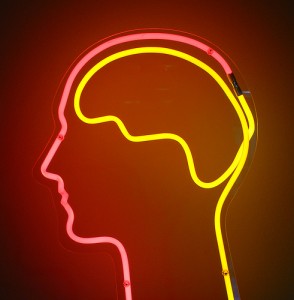
Photo by Dierk Schaefer
We are all creatures of habit. Right from our physical habits, related to what, when and how much we eat, sleep or exercise, to our emotional patterns, of love, anger, envy, fear, happiness or sadness, they recur with great alacrity. Likewise, our mental responses, be it of judging or accepting, seeking perfection or wholesomeness and controlling or letting go are vastly conditioned.
In essence, as we grow older, we become hard-wired to be a certain way. It is commonly believed that it is then challenging, perhaps impossible, to try and change any of these habits. However, latest Neuroscience research highlights how it is possible to introduce new wiring in the brain – thereby, effecting change and establishing new habits.
Whatever fires together, wires together
Neuroscience reveals that our deeply ingrained habits are indeed a form of physical hard wiring in our brain. It is akin to having established electrical circuits in the brain that make us react or behave in a pre-determined way. Similar stimuli then generate identical and predictable responses.
Brain messaging, of positive or negative thoughts, generates corresponding emotional sensation in us. Our instinctive response to these sensations, arising from our childhood experiences or inborn orientation, leads to a certain behavior. As we repeatedly behave in a certain way with a given type of messaging, the neural connections bonding the trigger and the response get set in the brain.
The neurons that fire together, wire together. That’s how the brain gets hard-wired – meaning the brain ‘memorizes’ the manner in which it needs to respond to a certain messaging. The more we repeat that pattern, the more the brain gets convinced and the stronger the hard wiring in the brain. For example, lets consider this scenario.
Armaan routinely thinks about his slow pace of career growth. As a result, he feels inadequate, sad and not lovable. As these feelings grow within him, he usually tries to counter them by turning to TV and eating sugary or fried foods. While this makes him feel good temporarily, the inner thoughts of being unsuccessful keep coming back and as he keeps responding to them in the same way, the brain learns and deepens its physical connection between this thought, emotion and the behavior.
Latest theory behind forming new habits
While for a long time neuroscientists believed that the human brain largely stops developing after childhood, the latest thinking of neuroplasticity convincingly challenges that. Neuroplasticity suggests that the neural connections and pathways are evolving all the time and can change based on factors like new experiences, behavior changes and conscious effort, including with exercise and meditation.
As psychiatrists Jeffrey Schwartz and Rebecca Gladding describe in their book ‘You are not your brain’, the key to forming new habits (and breaking off from the old ones) is to create new neural pathways in the brain. It’s akin to the brain literally drawing ‘new lines in the sand’ – essentially creating new connections between the old negative thoughts (and the associated emotional triggers) and an alternate, healthier behavior.
If we can become aware of our unhealthy emotional triggers (such as the feelings of inadequacy and not being lovable in the above example) and can choose a new behavior to deal with them (instead of turning to TV or junk food, going for a run or engaging in a meaningful hobby), we start to form new circuitry in the brain. If we can repeat it for some time, the connecting pathways in the brain get hard-wired to automatically respond in a new way.
What you need to do
Here are four ideas that can be particularly helpful in your efforts at inculcating specific new habits.
1. Building self-awareness
The key to rewiring your brain lies in building awareness about your personal negative triggers – the unwholesome thoughts and emotional sensations that get generated in your brain. Recognizing when you start to be judgmental, get anxious or angry, or feel jealous or left out and so forth can provide you the opportunity to respond to them in a new way.
2. Exploring alternate beliefs
Having identified your recurring mental or emotional triggers, it’s worth examining whether the underlying personal beliefs that lead to these emotions are necessarily valid. Are you feeling sad because of your existing beliefs about career success and its importance? Are you feeling inadequate because of your beliefs about how others should treat you?
Simultaneously, you may want to consider what alternate beliefs might be more accurate and may serve you better in these situations. Is it that you are not climbing the corporate ladder fast enough or is your ladder leaning against the wrong wall? Do others not treat you well or do you not treat yourself well? For more details on this approach, you may want to read a related post on beliefs and habits.
3. Making new choices
Having become aware of the beliefs that are at the source of your emotional experiences and considered alternate and healthier beliefs, it’s about taking responsibility towards making new choices in your actions. This is usually hard as we are competing with our well-ingrained instincts. However, if we can be determined to respond to our mental commentary in a healthier way, we can start the process of rewiring our brain towards healthier habits.
4. Sustained practice
Neuroplasticity works best with the notion of what is called attention density. Attention density is the idea of sustaining focus and attention on a thought, emotion or action over and over again – it’s not only about paying attention but being able to do it on a repetitive basis. The more we can do that, the better the chances of forming firmer and longer-term new circuits in the brain.
Try one new habit this year
Many of us are inspired to turn a fresh leaf at the beginning of a New Year – we also feel motivated to draw up a list of resolutions to better our lives and those of others around us. I wonder if you would like to try applying the above ideas to any one of your new year resolutions, particularly if it requires forming a new habit – be it being disciplined about your diet or exercise, switching off from work when at home, managing your temperament, pursuing a hobby or connecting better with friends and family.
Further, sharing your resolutions with others raises your personal commitment towards making them happen. Additionally, the step of sharing sends out the signals to the universe and allows you to receive support from unexpected quarters. In that context, please feel free to share on this blog that one new habit that you would like to inculcate in 2013.
Wish you a very Happy New Year and look forward to hearing your thoughts!
Related Search Terms:
How to increase brain power / How to improve brain power / How does brain work











 Discover Your IKIGAI, Create A Life
Discover Your IKIGAI, Create A Life Clarity Exists: Not in Thoughts, But In-between
Clarity Exists: Not in Thoughts, But In-between Simplify Your Life This New Year!
Simplify Your Life This New Year! Turning Mid-Life Crisis Into An Opportunity
Turning Mid-Life Crisis Into An Opportunity Dissolve Your Ego For A Happier Life
Dissolve Your Ego For A Happier Life
Best wishes to you and family for a happy and prosperous new year.
In nutshell, I feel it is about making yourself ” How Positive You Feel”.
The new year resolution in my case is to do something for those who are underprivileged. This may be helping them materially or giving them physiological support. This definitely adds to feeling good and thereby enhancing “Feel Good Factor”. Since health is state of physical, mental and social well-being and not merely absence of disease.
At present I do not have any negative triggers, but good thing you have brought that there is a possibility to evolve new habits irrespective of age.
You have shattered the age-old philosophy, thereby changing the dictum “Habits Die Hard”.
Best wishes to you and family for Happy & Prosperous New Year.
In nutshell, I feel it is about making yourself how positive you feel.
The new year resolution in my case is to do something for them who are underprivileged. This may be by helping them materially, giving psychological support.
This definitely adds to my feeling good and thereby enhancing “Feel Good Factor. Since health is state of physical control and social well-being and not merely absence of disease.
At present, I do not have negative triggers but good thing you have brought out those things which can change the old-age philosophy of “Habits Die Hard” and now it is possible to evolve new habit irrespective of age.
greetings for the new year,
i find that meditation does indeed help! i have noticed that i am less reactive these days, respond with less aggression or defensive replies,allow/let the other person have the last word (even if he/she is factually wrong), am more tolerant of mistakes made by me or others, the words of reprimand used are softer,milder and less attacking, find nit-picking, gossiping and back-biting to be less interesting or compulsive.
Over all there is increase in patience, tolerance and adjustment with others.Stress levels all round is reduced drastically!
Thank you for the articles.
hello! sir,thanks for your blog posts.Just wish to share some observations. Deep breathing and meditation are certainly powerful tools that transforms our attitude to circumstances.I have noticed that there is in me (personally), more tolerance(now) rather than criticism(earlier),more patience than anger,more clarity vs confusion, increased and easier acceptance of disappointments and failure,less expectation from/of others, more grateful of blessings received, less rushed for time, happy for tasks completed rather than being ‘down’ or ‘irritable’ with tasks that remain incomplete,more relaxed about doing less, okay about not being “successful” as the peers and world calls it!
Best wishes for the New Year.
sir, i notice that elders/senior citizens seem to often times go on nostalgia trips,live in the past glories or difficult times experienced by them in their childhood/teen-age/young adult lives and express disappointment at the lifestyle,conduct and values of others. Although their experience and wisdom is respected, elders do not always have the answers for current problems nor can cope easily with the changing environment. Definitely there is a wide generation gap.In this situation who should try to ‘rewire’ or ‘accept’ as is?
The only person we can work on is ourself. When we accept others as they are and empathize with their perspective, we create greater chances for love and understanding to foster in our relationships. This does not mean accepting or agreeing with everything the others say but being open to understanding others’ point of view while respectfully expressing our own. Hope this helps.
sir, your reply was very prompt and thank you. I do respect the elders for their experience and wisdom gained from life’s hardship, give due credit for their advice,care for them, but it saddens me and is frustrating when they cannot cope,struggle,are adamant or are not resilient enough with the changing circumstances.
Agree with you that the only person we can work on is ourselves. Learn to be more patient, give them the space to work-out their karma,be a little detached to their struggle yet continue to offer/provide support; in effect prepare ourselves for old-age!!
The new alchemy resides in the quantum brain theory . It is well known that creativity is a function of synaptogenesis that gives neuro-plasticity to the brain . Nowadays it is important to know that the cleft at the neurologica synapses are about 20/40 nanometers and at this dimensions works the quantum effects in the brain communications. These quantum effects are cause by the Superposition, of orbital wave functions of bond elections of neurotransmitters closed between the synapses. This superposition of electron-clauds generate the quantum entanglement change in the information communication of the brain from a linear sequance to a
Coherence spread of a communication field that permits that all parts of the quantum brain system stay in perfect synchronism of activities. As a matter of facts electron entanglement at the synapses allows the wave functions to be forever connected such that changing one changes the other instantly, in all the information energy field created the synaptic cleft separation that work as a quantum tunnelling without barriers to spread the informational signals. Paolo Manzelli 24th SEPT-2013 FIRENZE
Thank you Paolo for sharing your deep scientific insight into the ability for our brains to get rewired and for us to create thinking and habits. Appreciate it!